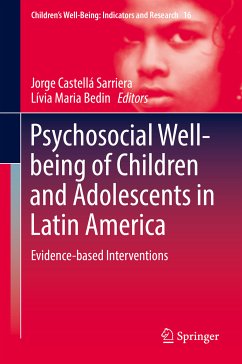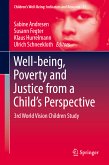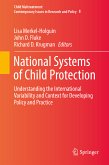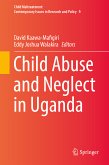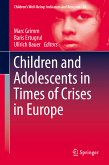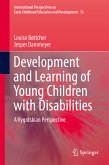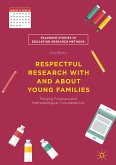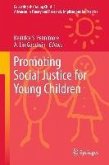Psychosocial Well-being of Children and Adolescents in Latin America (eBook, PDF)
Evidence-based Interventions
Redaktion: Sarriera, Jorge Castellá; Bedin, Lívia Maria


Alle Infos zum eBook verschenken

Psychosocial Well-being of Children and Adolescents in Latin America (eBook, PDF)
Evidence-based Interventions
Redaktion: Sarriera, Jorge Castellá; Bedin, Lívia Maria
- Format: PDF
- Merkliste
- Auf die Merkliste
- Bewerten Bewerten
- Teilen
- Produkt teilen
- Produkterinnerung
- Produkterinnerung

Hier können Sie sich einloggen

Bitte loggen Sie sich zunächst in Ihr Kundenkonto ein oder registrieren Sie sich bei bücher.de, um das eBook-Abo tolino select nutzen zu können.
This book discusses child well-being, with children and adolescents as key informants, from a Latin American perspective. It explores theoretical and empirical issues related to well-being and associated aspects, in order to understand the well-being of this population. Topics analyzed in this volume address for instance environment and community, rights, leisure time, technologies, interpersonal relationships and spirituality and their implications for changes in the well-being in children and adolescents. Especially relevant for scholars and professionals in the social and health sciences,…mehr
- Geräte: PC
- ohne Kopierschutz
- eBook Hilfe
- Größe: 5.18MB
![Well-being, Poverty and Justice from a Child's Perspective (eBook, PDF) Well-being, Poverty and Justice from a Child's Perspective (eBook, PDF)]() Well-being, Poverty and Justice from a Child's Perspective (eBook, PDF)69,95 €
Well-being, Poverty and Justice from a Child's Perspective (eBook, PDF)69,95 €![National Systems of Child Protection (eBook, PDF) National Systems of Child Protection (eBook, PDF)]() National Systems of Child Protection (eBook, PDF)105,95 €
National Systems of Child Protection (eBook, PDF)105,95 €![Child Abuse and Neglect in Uganda (eBook, PDF) Child Abuse and Neglect in Uganda (eBook, PDF)]() Child Abuse and Neglect in Uganda (eBook, PDF)97,95 €
Child Abuse and Neglect in Uganda (eBook, PDF)97,95 €![Children and Adolescents in Times of Crises in Europe (eBook, PDF) Children and Adolescents in Times of Crises in Europe (eBook, PDF)]() Children and Adolescents in Times of Crises in Europe (eBook, PDF)73,95 €
Children and Adolescents in Times of Crises in Europe (eBook, PDF)73,95 €![Development and Learning of Young Children with Disabilities (eBook, PDF) Development and Learning of Young Children with Disabilities (eBook, PDF)]() Louise BøttcherDevelopment and Learning of Young Children with Disabilities (eBook, PDF)89,95 €
Louise BøttcherDevelopment and Learning of Young Children with Disabilities (eBook, PDF)89,95 €![Respectful Research With and About Young Families (eBook, PDF) Respectful Research With and About Young Families (eBook, PDF)]() Alice BrownRespectful Research With and About Young Families (eBook, PDF)40,95 €
Alice BrownRespectful Research With and About Young Families (eBook, PDF)40,95 €![Promoting Social Justice for Young Children (eBook, PDF) Promoting Social Justice for Young Children (eBook, PDF)]() Promoting Social Justice for Young Children (eBook, PDF)73,95 €
Promoting Social Justice for Young Children (eBook, PDF)73,95 €-
-
-
Dieser Download kann aus rechtlichen Gründen nur mit Rechnungsadresse in A, B, BG, CY, CZ, D, DK, EW, E, FIN, F, GR, HR, H, IRL, I, LT, L, LR, M, NL, PL, P, R, S, SLO, SK ausgeliefert werden.
- Produktdetails
- Verlag: Springer International Publishing
- Seitenzahl: 339
- Erscheinungstermin: 7. Mai 2017
- Englisch
- ISBN-13: 9783319556017
- Artikelnr.: 53059161
- Verlag: Springer International Publishing
- Seitenzahl: 339
- Erscheinungstermin: 7. Mai 2017
- Englisch
- ISBN-13: 9783319556017
- Artikelnr.: 53059161
- Herstellerkennzeichnung Die Herstellerinformationen sind derzeit nicht verfügbar.
